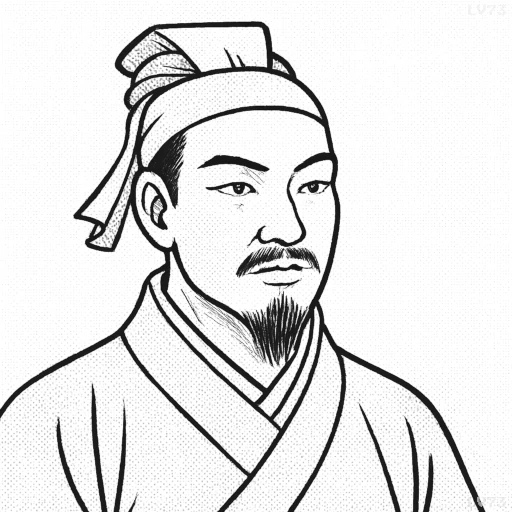“If our soldiers are not overburdened with money, it is not because they have a distaste for riches; if their lives are not unduly long, it is not because they are disinclined to longevity.”

- 544 BC-496 BC
- Born in China
- Military strategist, military strategist
table of contents
Quote
“If our soldiers are not overburdened with money, it is not because they have a distaste for riches; if their lives are not unduly long, it is not because they are disinclined to longevity.”
Explanation
In this quote, Sun Tzu speaks to the inherent self-discipline and dedication required of soldiers, or by extension, any individuals committed to a greater cause. The statement highlights that the absence of wealth and shortness of life are not due to personal lack of desire or inclination, but rather are the result of circumstances and choices that are aligned with the needs of the task at hand. Soldiers are not wealthy because their focus is not on personal gain but on the fulfillment of their duty. Similarly, their lives are not prolonged because their purpose is to serve in the here and now, facing the dangers of battle. The idea suggests that sacrifice and prioritization are integral to achieving the larger strategic goals, even at the cost of personal wealth or longevity.
In business and leadership, this concept speaks to the notion of sacrifice for the greater good and the idea that success often requires individuals or organizations to focus on long-term goals rather than immediate gratification. For example, founders of successful startups or companies often forgo immediate wealth and comfort, reinvesting their resources into the growth and future success of their enterprises. Leaders in these situations are willing to endure hardship or make sacrifices in their personal lives to achieve a greater vision. Similarly, the idea that money or luxury can be a distraction reflects the broader principle that personal desires must sometimes be put aside to fulfill a larger purpose, as seen in the sacrifices of entrepreneurs like Elon Musk, who poured personal wealth into ventures like Tesla and SpaceX, despite public skepticism and personal risk.
In military strategy, Sun Tzu’s words emphasize the concept of dedication to the mission and acceptance of hardship as necessary components of success. Historically, Spartan warriors were trained to endure extreme hardship, forgoing personal luxuries or long lives for the sake of their military duty. In modern warfare, soldiers may face similar challenges, often experiencing limited resources, long deployments, and high risks to accomplish broader strategic objectives. For instance, during World War II, British soldiers in North Africa were not provided with luxurious conditions, yet their focus was on achieving victory, not personal comfort. The idea also applies to contemporary military leaders, who often face personal sacrifice in their commitment to their nation’s goals, underlining that sometimes, success requires enduring hardship for the larger cause, even at the cost of personal wealth or longevity.
Would you like to share your impressions or related stories about this quote in the comments section?
